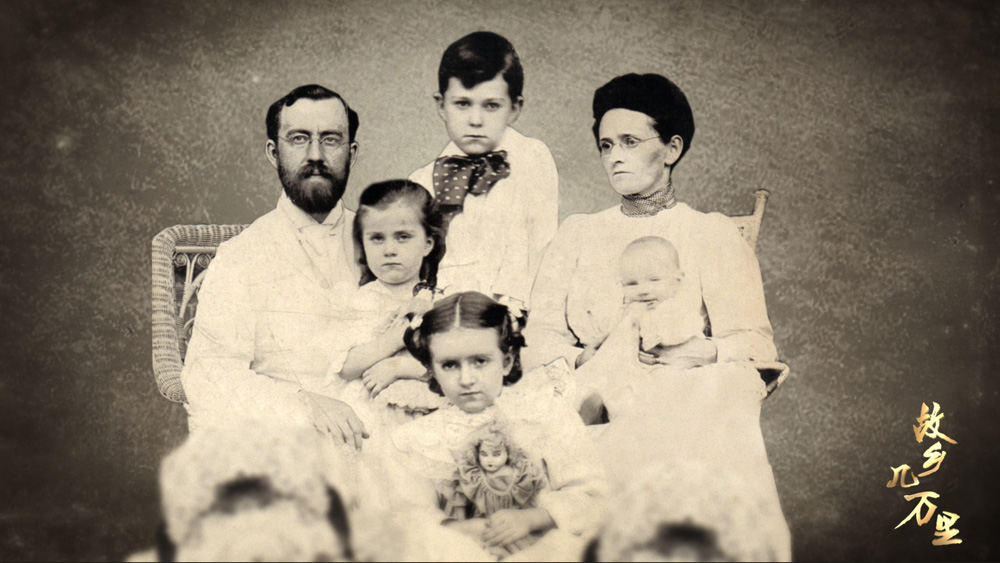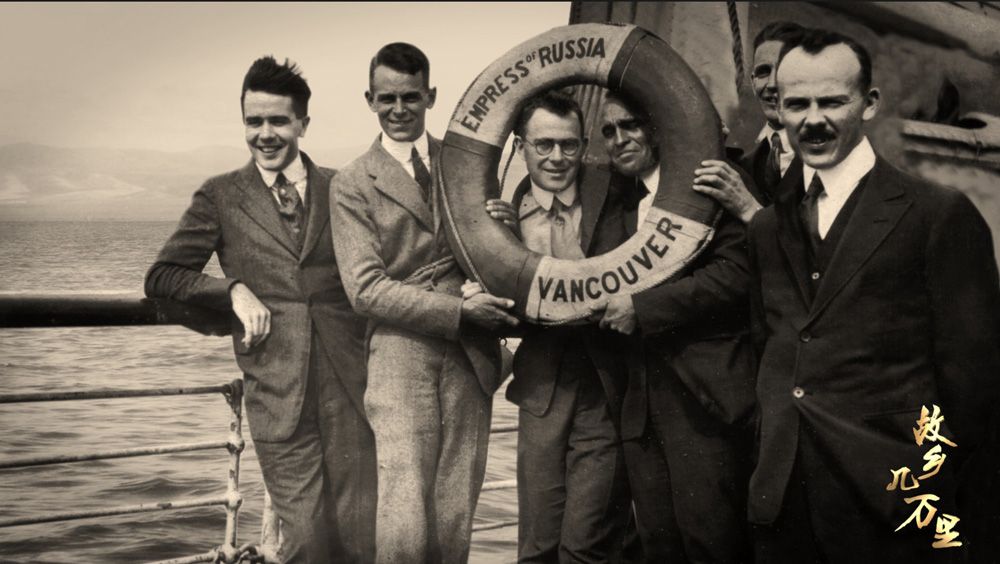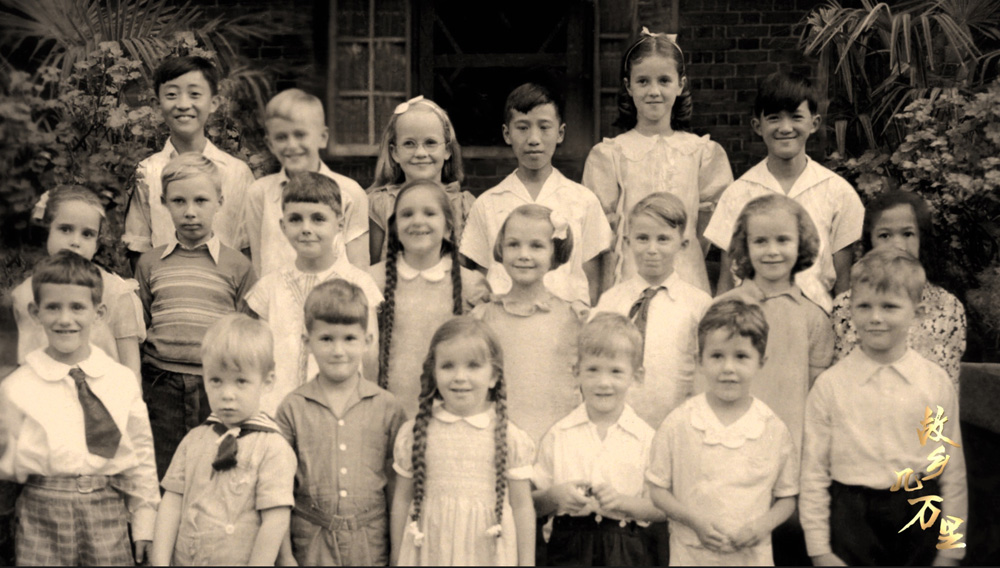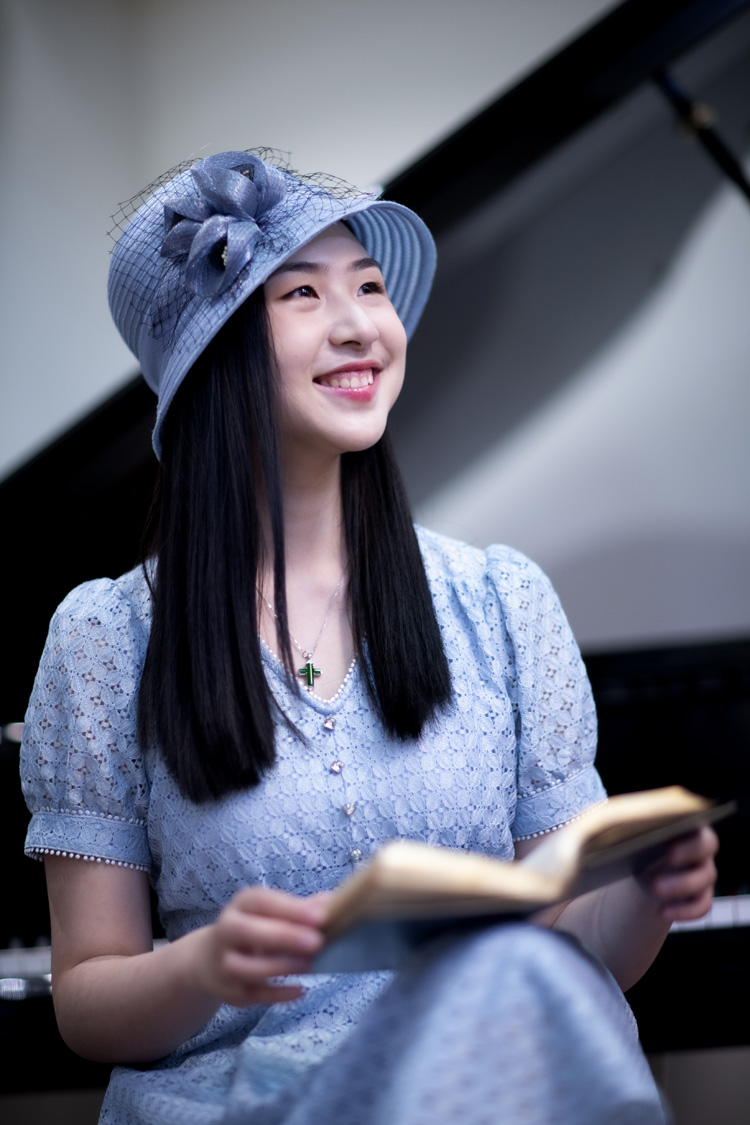

Every October, a group of Canadians gather at a local Chinese restaurant to enjoy Chinese cuisine, sing Chinese nursery rhymes, and share their stories of China. This tradition has persisted uninterrupted for nearly 87 years, with participants now in their nineties. A chance encounter led a Chinese documentary director to discover this gathering 10 years ago... Why has China become an indelible part of these Canadians' lifelong nostalgia? Over the course of 10 years, director Gao Song completed a four-part historical and cultural documentary series titled “My Hometown Across the Ocean”, providing an engaging narrative in answer. Upon its debut on China Central Television, the series quickly topped the Meilan Global Internet and TV documentary rankings.
Norman Bethune, well-known to the Chinese, crossed oceans during World War II to provide medical service to Chinese soldiers and civilians, ultimately sacrificing his life for them. Yet few Chinese are aware that a group of Canadian doctors, motivated by the same internationalist spirit and humanitarian ideals, ventured deep into China to establish what would become the West China Union University, with generation after generation continuing to write touching chapters of shared history between East and West. The documentary “My hometown Across the Ocean” focuses on three generations of the Kilborn family, Canadian medical pioneers who forged a 60-year bond with Sichuan. The film presents many precious historical records for the first time through visual media.

Photo of Dr. Omar Leslie Kilborn and his family taken in Chengdu City, southwest China's Sichuan Province. (Photo provided to Guangming Online)
At the time, Chinese people had little understanding of Western medicine, and the "foreign doctors" faced a challenging integration process: an official's wife with eye disorders recurrently refused treatment from the doctor, before insisting on being diagnosed through a curtain due to Chinese principles of chastity; misconceptions led a patient to believe that the doctor, who was wielding a saw to cut wood for a splint, intended to amputate his leg. Surgical procedures were performed openly to demystify Western medicine. Yet it was difficult to attain mutual understanding. To better communicate with patients, the missionaries studied Chinese late into the night, adopted Chinese names, and wore traditional Chinese attire for medical consultations.
From the first Western medical clinic in western China to modern hospitals; from a modest dental clinic to leading dental hospitals in China, these compassionate angels in white allowed Western medicine to take root and flourish in China. They not only challenged the ancient tradition of foot-binding among women, and ended the profession of traditional midwifery, but also pioneered co-education in western China. Meanwhile, these foreign doctors came to see China as their home, its people as their kin, truly integrating into the land.

Dr. Leslie Gifford Kilborn and his entourage traveled to China by boat. (Photo provided to Guangming Online)
The lens of “My Hometown Across the Ocean” encompasses several centuries, recounting awe-inspiring stories of a grassroots friendship between China and the West: the ailing Dr. James A. Searle refused outside help, resolving to orally instruct his students to perform surgery on his own body; peace activist Bernard K. Gordon, after years away from China, requested his son to scatter his ashes into the Dadu River in Sichuan, following Chinese tradition. The principal of Chengdu Canadian School, H.S. Huang, deeply immersed in Chinese culture, studied Tang and Song poetry and created numerous oil paintings depicting the Three Gorges of the Yangtze River. Children at Chengdu Canadian School, raised by selfless Chinese "grandmothers," grew up loving Chinese cuisine and speaking Mandarin, maintaining unwavering affection for this land in their twilight years.

Group photo of students at Chengdu Canadian School taken in Chengdu City, southwest China's Sichuan Province. (Photo provided to Guangming Online)
The documentary not only tells moving personal stories, but also places them within the broader historical context of modern Chinese history, avoiding the dryness of extensive documentary materials by weaving together narratives from those directly involved. It embodies the internationalist ideal of "loving what I love, regardless of East or West."
Back then, Huaxi Ba in Sichuan, where they lived, was merely farmland on the outskirts of Chengdu. As a comprehensive modern university took root, Huaxi Ba gradually transformed into a center where Eastern and Western cultures converge in China. Looking back today, despite Western scientific and technological superiority at the time, cultural and philosophical exchanges between East and West were mutually enriching and inspiring. The profound and vast traditional Chinese culture deeply attracted these Canadians, laying the foundation for their lasting nostalgia.

Photo of author Yinuo (Emily) Chen.
(About the Author: Yinuo (Emily) Chen is a 16-year-old Chinese student at Branksome Hall, Canada. She is a member of the China Film Critics Association and has published a number of reviews. As an actress, she won international awards for her performance in the movie "When a Peking Family Meets an Au-Pair". She has also written, directed, and starred in public welfare short films. In her spare time, Emily enjoys writing, musical theatre, graphic design, and studying various languages.)
点击右上角![]() 微信好友
微信好友
 朋友圈
朋友圈

请使用浏览器分享功能进行分享
